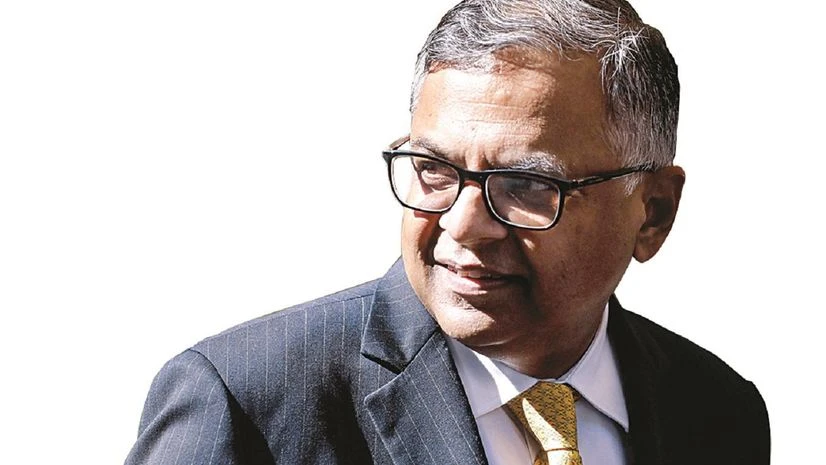The Tata Group will create 500,000 manufacturing jobs over the next five years across sectors such as semiconductors, electric vehicles (EVs), batteries, and related industries, Chairman N Chandrasekaran said on Tuesday. Speaking at a symposium organised by the Indian Foundation for Quality Management, Chandrasekaran highlighted the crucial role of manufacturing in India’s goal of becoming a developed nation.
Chandrasekaran emphasised that without job creation in the manufacturing sector, India would not achieve its ambitions of a “Viksit Bharat” (Developed India). He noted that around one million people enter the workforce in India every month, making job creation in manufacturing essential for the country’s future growth.
“Between our (Tata Group's) investments in semiconductors, precision manufacturing, assembly, electric vehicles, batteries, and related industries, I think we will create five lakh [500,000] manufacturing jobs in the next five years,” he said.
One of the key projects he mentioned was Tata Group’s upcoming semiconductor plant in Assam, as well as other manufacturing units for EVs and batteries. The Tata Group Chairman acknowledged that while the full details of these initiatives are still being worked out, preliminary calculations suggest that these investments will have a multiplier effect, creating more work opportunities. He added that the manufacturing ecosystem is likely to see the emergence of around 500,000 small and medium enterprises (SMEs).
Chandrasekaran also stressed the importance of job creation in India, particularly in sectors like semiconductor manufacturing, which have a "multiplier effect" and can create multiple indirect jobs.
Also Read
“We need to create 100 million jobs,” he concluded.
India's manufacturing sector growth in FY23
In the financial year that ended on March 31, 2024 (FY23), India's manufacturing sector saw a 7.4 per cent rise in employment, with 1.3 million new jobs created, up from 1.1 million in FY22. According to data from the National Statistical Organisation (NSO), as reported by Business Standard, this growth has been driven by a strong performance in the sector’s gross value added (GVA), which grew by 7.3 per cent to Rs 21.97 trillion at current prices.
Total industrial output surged by 21.5 per cent, reaching Rs 144.86 trillion during FY23. Maharashtra led in GVA contributions from manufacturing, followed by Gujarat, Tamil Nadu, Karnataka, and Uttar Pradesh. Together, these five states accounted for 54.5 per cent of the country’s total manufacturing GVA.
The average emolument for workers in the manufacturing sector also saw a rise, increasing by 6.3 per cent to Rs 3.46 lakh per annum in FY23, compared to Rs 3.25 lakh in the previous year.
India's manufacturing Purchasing Managers Index (PMI) reached a 16-year high of 59.1 in March this year. A PMI above 50 represents expansion in a sector, while anything less generally indicates a contraction. Although expansion has slowed, with August recording a PMI of 57.5, it remains well above the 50-mark.
(With agency inputs)

)